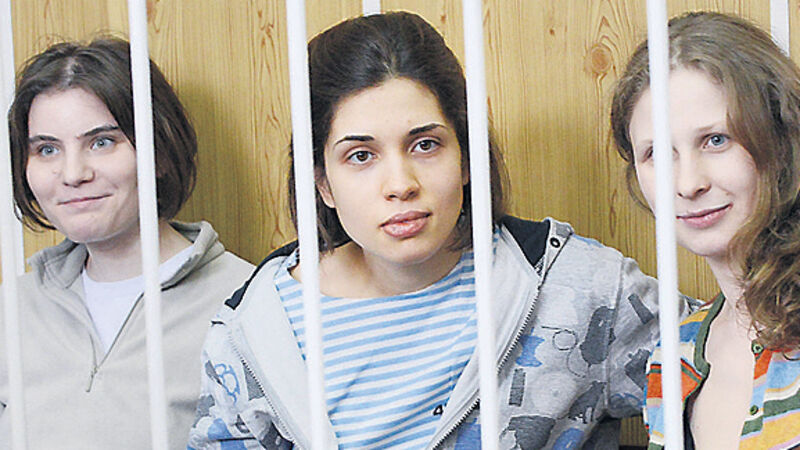Last Pussy Riot members freed from Russian jail

The two remaining jailed members of Russian punk band Pussy Riot have been released from prison but one says the amnesty bill that gave her freedom was a Kremlin public relations stunt.
Maria Alekhina and Nadezhda Tolokonnikova were granted amnesty last week, which was largely viewed as the Kremlin’s attempt to soothe criticism of Russia’s human rights records ahead of the Winter Olympics in Sochi in February.














